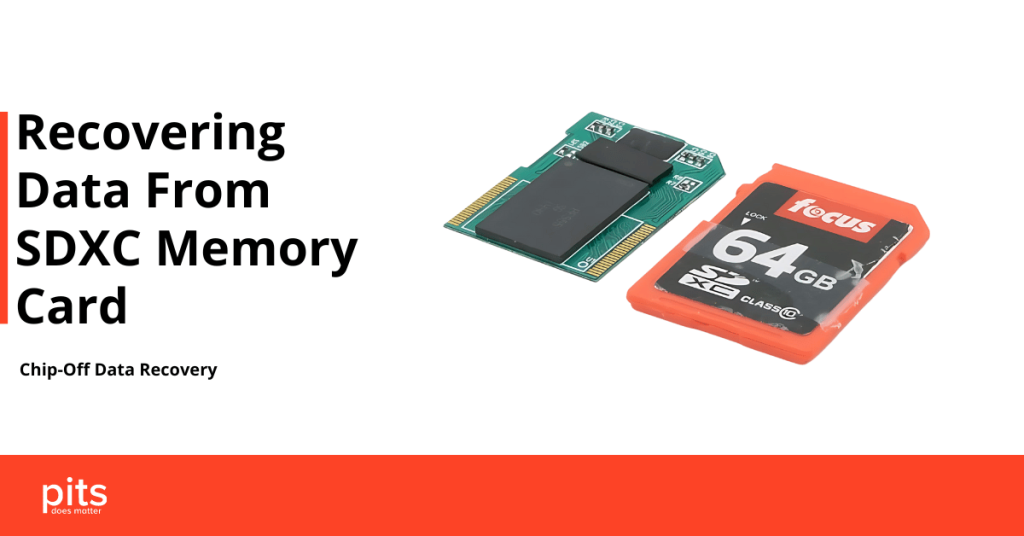A corrupted hard drive can occur due to various factors, including logical, physical, or mechanical issues. This type of failure can affect multiple folders and files, making them inaccessible and leading to potential data loss. Addressing a corrupted hard drive requires understanding the cause of the corruption to select the appropriate recovery method.
If you’re dealing with logical issues like software problems, file system errors, or bad sectors, it’s best to consult professional data recovery experts, as attempting to fix these issues yourself could lead to more data loss. The same goes for physical or mechanical damage; problems such as damaged read/write heads, platter damage, or circuit board failure should only be handled by professionals to prevent further harm and maximize the chances of data recovery.
What is a Corrupted Hard Drive?
A corrupted hard drive shows its signs almost immediately. When a hard drive fails, you may experience sudden system shutdowns, frequent program crashes, or even the dreaded blue screen of death. These errors occur because the hard drive is no longer able to execute processes correctly, leading to file damage or data loss.
Common symptoms of a corrupted hard drive include:
- Disappearing folders and files.
- The system may refer to bad sectors when refusing to execute commands.
- Unusual noises like clicking or grinding, which could indicate physical damage.
How to Recover Files from a Corrupted Hard Drive
Dealing with a corrupted hard drive can be challenging, and improper actions can make the situation worse. While it may be tempting to try a DIY solution, it’s important to handle a failed drive carefully. Follow these essential steps to maximize your chances of recovering files from a corrupted hard drive:
1. Back Up Your Files
If your hard drive is showing signs of corruption, back up your important files immediately if they are still accessible. This ensures that no matter the outcome, your critical data is saved on a secure, alternative device. We recommend regularly backing up your files to avoid severe data loss in the event of drive failure.
2. Power Down the Hard Drive
When you notice unusual noises (clicking, buzzing) or slow performance, power down your hard drive immediately. These signs often point to physical or mechanical issues, and continuing to run the drive could cause further damage, making data recovery impossible. Powering off the drive and avoiding restarting it is crucial.
3. Do Not Open the Drive
Avoid the temptation to open the hard drive to inspect for damage. The problem could be related to logical issues, such as viruses or software errors, which won’t be visible upon opening the device. Moreover, attempting to replace parts yourself can cause more harm than good. Hard drives have complex, specialized infrastructure, and donor parts may not fit, making the situation worse.
Professional engineers handle repairs in ISO Certified Class 10 Cleanroom environments which are dust-free and maintain controlled humidity levels. This ensures that no additional damage occurs during the recovery process.
4. Avoid Using Data Recovery Software
Many online tutorials recommend using data recovery software to restore files from a corrupted hard drive. However, we strongly advise against downloading and installing any software on a failed hard drive. Doing so can overwrite the lost data making recovery impossible. Additionally, these tools may recover non-essential files while leaving critical documents unretrieved. Some unverified tools may even introduce malware, further complicating the issue.
5. Collect All Information About the Failure
Take note of any error messages, unusual signs, and behaviors exhibited by the hard drive. This information will be useful when consulting with a data recovery expert, as it helps in diagnosing the issue. Additionally, provide details about the hard drive’s brand, model, storage capacity, and year of manufacture. This context assists professionals in identifying the best recovery strategy.
Corrupted Hard Drive Data Recovery Process
Recovering data from a corrupted hard drive is a complex task that requires advanced techniques and tools. This process involves addressing the specific cause of the corruption—whether it’s a logical issue, software malfunction, file system error, or physical damage. Here’s what a professional recovery typically involves:
Initial Diagnosis: Experts will assess the drive to determine whether the corruption is due to logical, physical, or mechanical issues.
Recovery Strategy: Based on the diagnosis, engineers will implement the most effective recovery methods, using advanced tools to retrieve data while ensuring the drive is not further damaged.
Data Retrieval: Files are extracted from the corrupted drive using specialized equipment, ensuring maximum recovery of valuable data.
Why Professional Help is Necessary for Corrupted Hard Drive Recovery
Handling a corrupted hard drive on your own can be risky. The process of recovering data from a corrupted drive involves not only technical expertise but also precision and care. Attempting DIY methods or using software that is not tailored to your specific issue could result in permanent data loss.
At PITS Global Data Recovery Services, we offer professional data recovery services for internal and external hard drives, using advanced techniques to retrieve your lost files. We specialize in handling drives from various manufacturers and file systems, ensuring the highest chances of success. With years of experience and latest tools, we are equipped to recover data from corrupted hard drives. Contact us today by filling out our Request Help Form or giving us a call.
Frequently Asked Questions
What causes a hard drive to become corrupted?
A hard drive can become corrupted due to several factors, including logical issues such as file system errors, software malfunctions, or bad sectors. Physical or mechanical damage, such as failing read/write heads, platter damage, or circuit board failures, can also corrupt the drive and make data inaccessible.
Can I use data recovery software to recover files from a corrupted hard drive?
Using data recovery software on a corrupted hard drive is not recommended, as it can potentially overwrite critical data, making recovery more difficult or impossible. Additionally, unverified recovery software may introduce malware or only recover non-essential files. It’s best to seek professional help for complex issues like hard drive corruption.
How can I tell if my hard drive is physically damaged or experiencing logical corruption?
Physical damage often causes audible signs like clicking, grinding, or buzzing noises, while logical corruption usually results in error messages, missing files, or system crashes (e.g., blue screen of death). If you’re unsure, it’s best to have a professional assess the situation before attempting any recovery methods.
What should I do if my hard drive is corrupted?
If you notice signs of corruption, such as unusual noises, missing files, or slow performance, immediately power down the hard drive. Avoid using the drive to prevent further damage and data loss. It’s also important not to attempt DIY repairs or use unverified recovery software. Contact a professional data recovery service for the best chance of retrieving your files.
How can professionals recover data from a corrupted hard drive?
Professional data recovery companies, such as PITS Global Data Recovery Services, utilize specialized tools and techniques to recover data from both logically and physically corrupted hard drives. They perform diagnostics to identify the cause of corruption and work in controlled environments like ISO Certified Cleanrooms to recover data without causing additional damage. Their advanced equipment ensures a higher success rate in recovering lost data.


